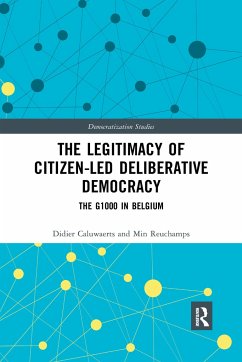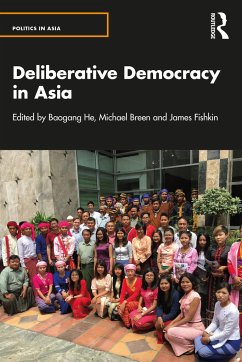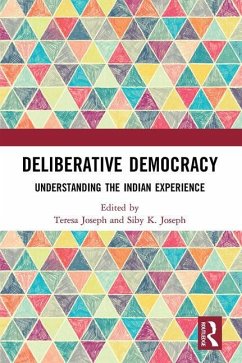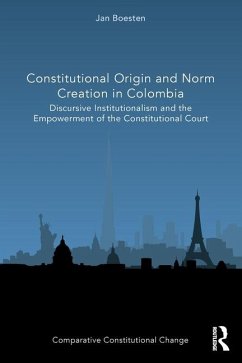
Deliberative Constitution-making
Opportunities and Challenges
Herausgegeben: Reuchamps, Min; Welp, Yanina
Versandkostenfrei!
Versandfertig in 6-10 Tagen
154,99 €
inkl. MwSt.
Weitere Ausgaben:

PAYBACK Punkte
77 °P sammeln!
This book explains deliberative constitution-making with a special focus on the connections between participation, representation and legitimacy and provides a general overview of what the challenges and prospects of deliberative constitution-making are today.It seeks to provide a more complete picture of what is at stake as a political trend in various places in the world, both theoretically and empirically grounded. Distinctively, the book studies not only established democracies and well-known cases of deliberative constitution-making but also such practices in authoritarian and less consol...
This book explains deliberative constitution-making with a special focus on the connections between participation, representation and legitimacy and provides a general overview of what the challenges and prospects of deliberative constitution-making are today.
It seeks to provide a more complete picture of what is at stake as a political trend in various places in the world, both theoretically and empirically grounded. Distinctively, the book studies not only established democracies and well-known cases of deliberative constitution-making but also such practices in authoritarian and less consolidated democratic settings and departs from a traditional institutional perspective to have a special focus on actors, and in particular underrepresented groups.
This book is of key interest to scholars and students of deliberative democracy, constitutional politics, democratization and autocratization studies, citizen participation and more broadly to comparative politics, public administration, social policy and law.
It seeks to provide a more complete picture of what is at stake as a political trend in various places in the world, both theoretically and empirically grounded. Distinctively, the book studies not only established democracies and well-known cases of deliberative constitution-making but also such practices in authoritarian and less consolidated democratic settings and departs from a traditional institutional perspective to have a special focus on actors, and in particular underrepresented groups.
This book is of key interest to scholars and students of deliberative democracy, constitutional politics, democratization and autocratization studies, citizen participation and more broadly to comparative politics, public administration, social policy and law.













